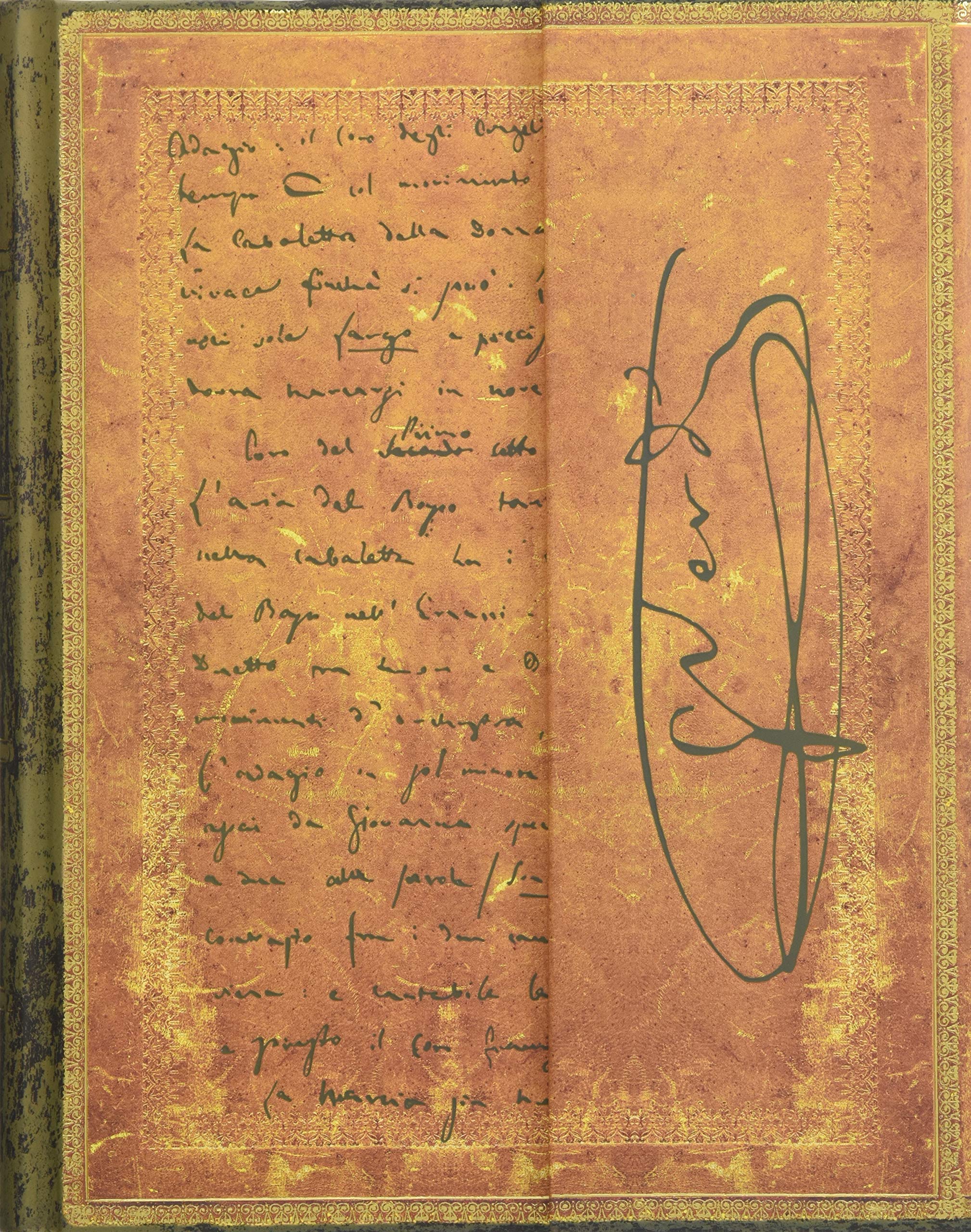
Categorii: Carnete large
Brand: Paperblanks
Colectie: Embellished Manuscripts
Tip: Jurnal
Număr pagini: 144
Liniatura: Velina
Tip copertă: Hardcover
Material Coperta: Piele ecologica
Tip Legatura: Cusatura
Țara de origine: Irlanda, Irlanda
Cod de bare: 9781439729137
Dimensiuni: H: 23cm | l: 18cm | 576g

Giuseppe Verdi’s (1813–1901) instincts for finding the right material led him to create works that virtually define the general public’s understanding of opera, such as Aida and Rigoletto. Featured on our Verdi, Carteggio journal cover is an excerpt from his correspondence. May his legacy inspire your own hand.
Giuseppe Fortunino Francesco Verdi (1813–1901) stands out as one of the greatest Italian composers to write opera. Born to a family of modest means near Busseto, Verdi developed his musical skill with the help of local patrons. He, like many composers of the day, was greatly influenced by Bellini and Rossini, though he eventually came to surpass them by developing his own unique style. His instincts for finding the right material led him to create works that, today, virtually define the general public’s understanding of opera.
An intensely private person, much of what we know about Verdi comes from the subject matter of his operas. In his early work, he demonstrated sympathy with the Risorgimento movement, suggesting a desire to see a unified Italy. He was also elected and employed, however briefly, as a politician.
Aside from his political affiliations, Verdi did not join with any cultural or musical groups, instead focusing on his own work and private life. In fact, once he became an accomplished opera writer, his music took a backseat and he established himself instead as a landowner. Though successful enough to leave the musical world for a while, it is actually the works he wrote after his brief interlude that brought him the most recognition and lasting fame. Aida (1871), Requiem (1874), Otello (1887) and Falstaff (1893) were all written after his surprising return to music.
As is the case with many artistic geniuses, Verdi’s work and even personality – though popular with audiences – polarized the critics of his day. Henry Chorley, the English critic, found that his faults were “calculated to destroy and degrade taste beyond those of any Italian composer.” Even his biographer, John Rosselli, stated, “I do not very much like the man Verdi,” finding the composer’s landowning counterintuitive to his musical authenticity.
By the time of Verdi’s death in 1901, however, most critics had come around and his reputation as one of the greatest composers was assured. In fact, the 1910 Grove’s Dictionary defined Verdi as “one of the greatest and most popular opera composers of the nineteenth century.” Verdi’s legacy has only grown since then, and few are those who have never heard of his work. His signatures remain so distinctive that other composers do not even attempt to use them, and his operas are still frequently staged around the world.
Featured on our Verdi, Carteggio cover is an excerpt from Verdi’s correspondence. May his natural and canny instincts live forever on the great stages and his legacy inspire your own hand.